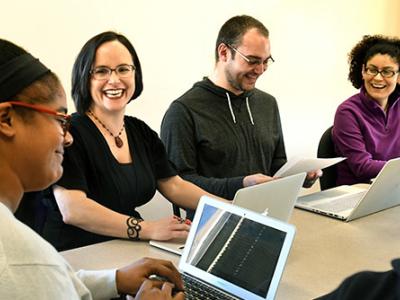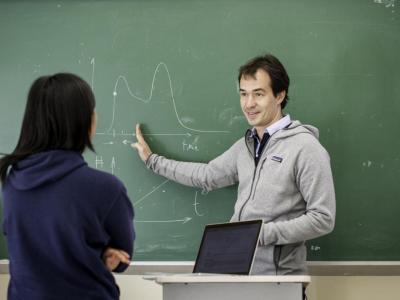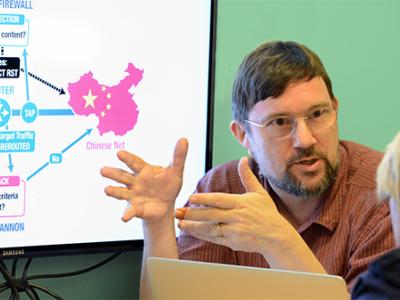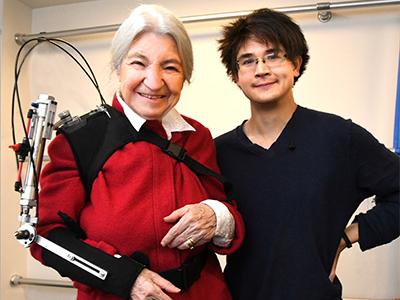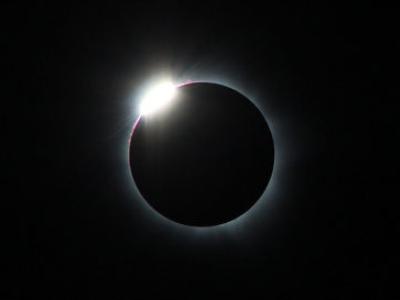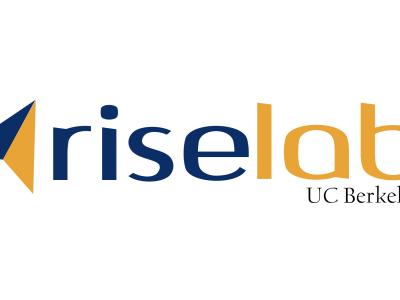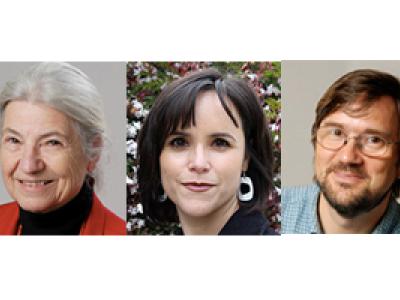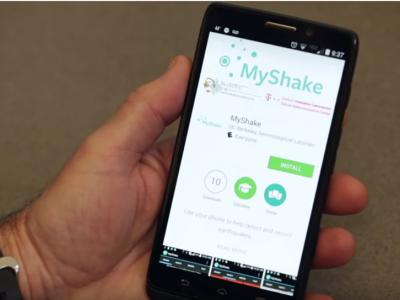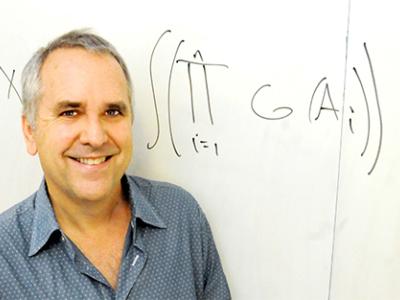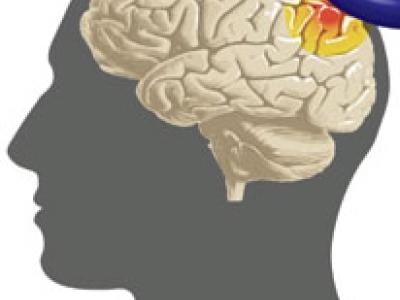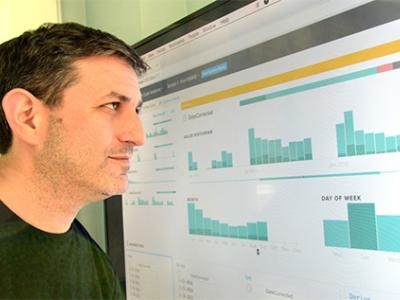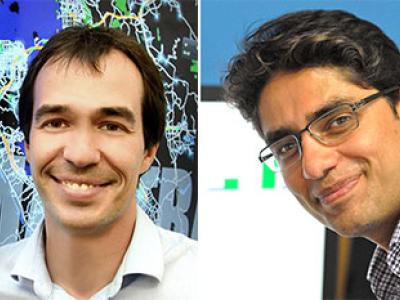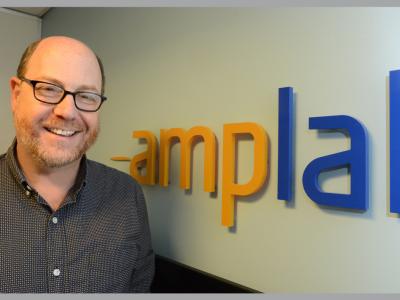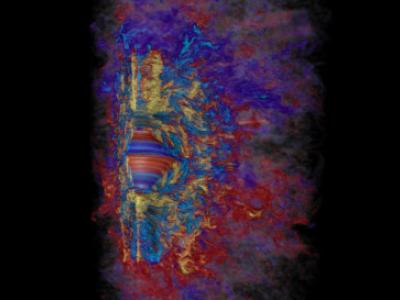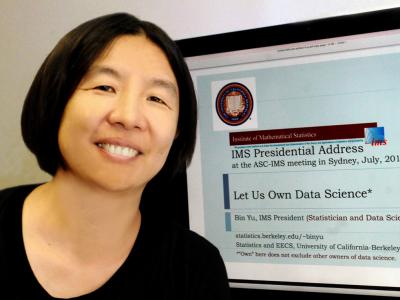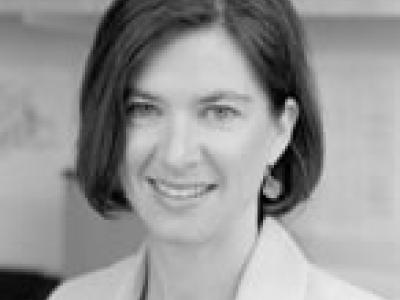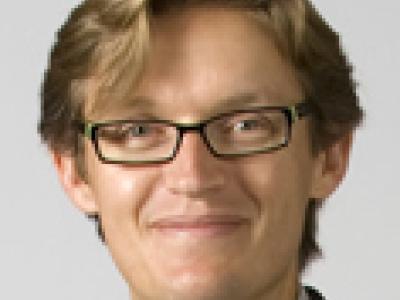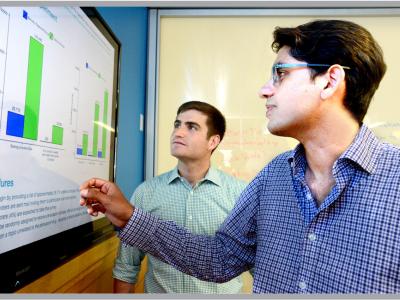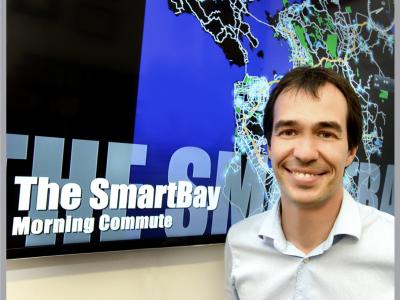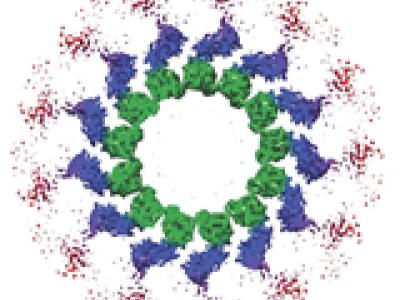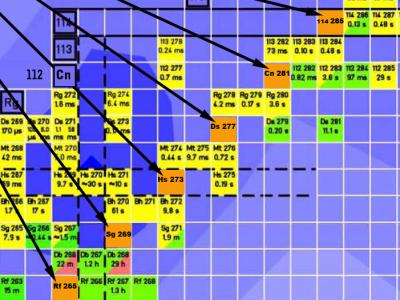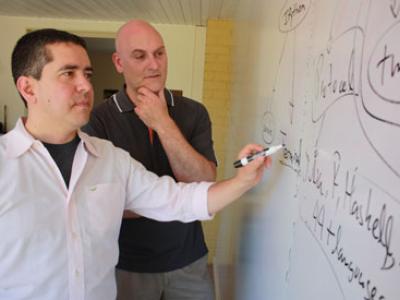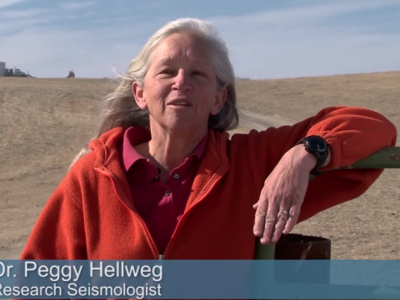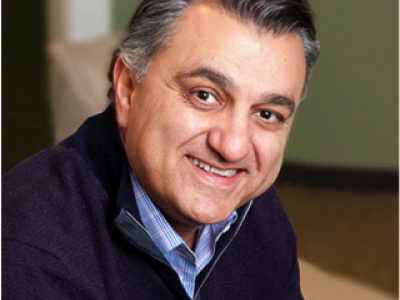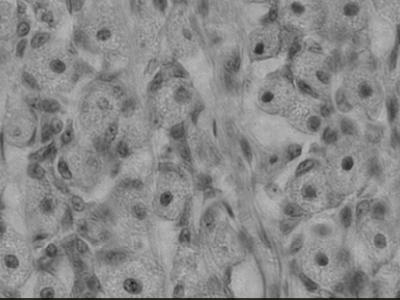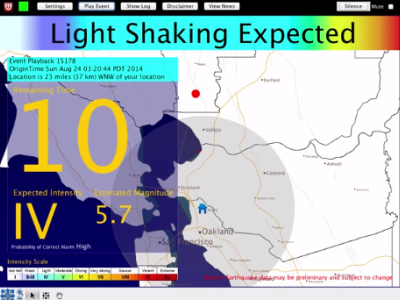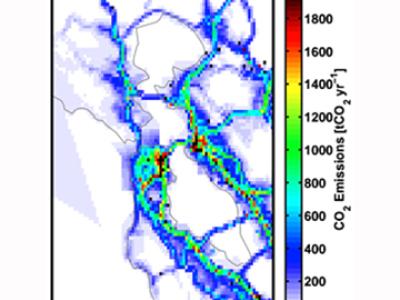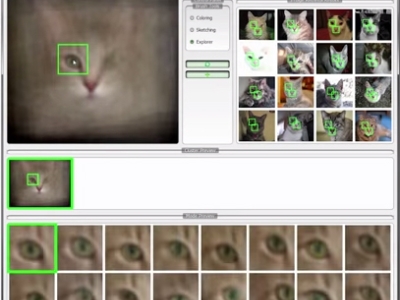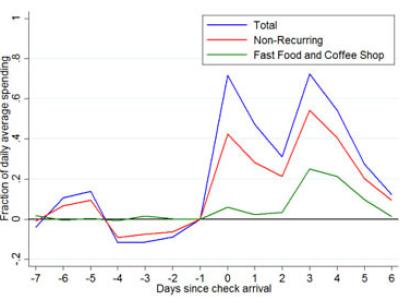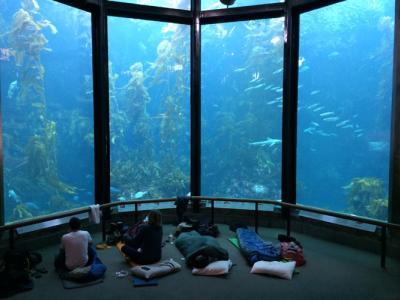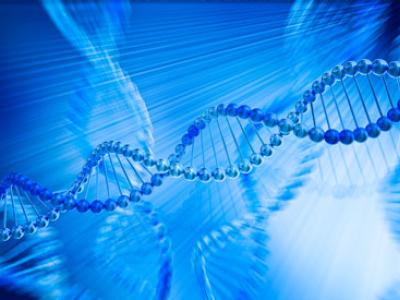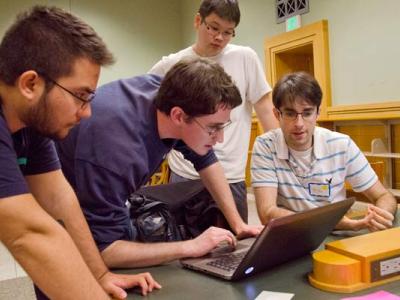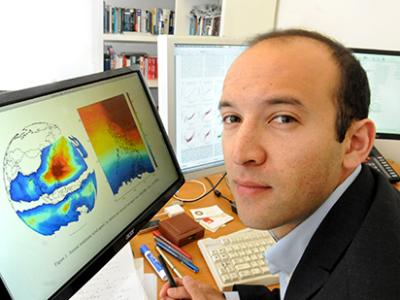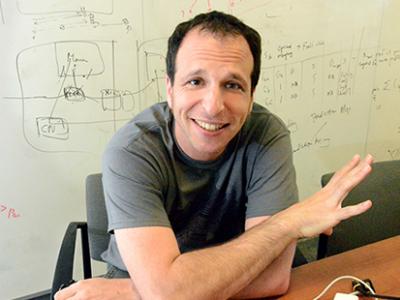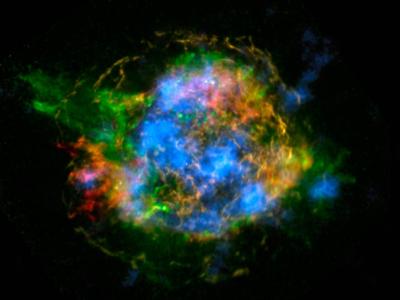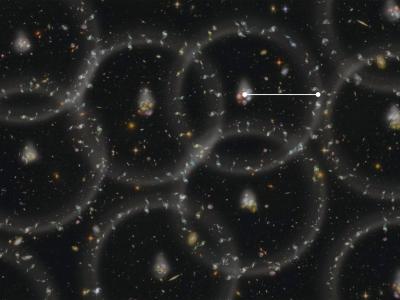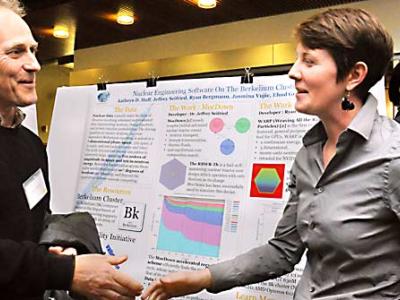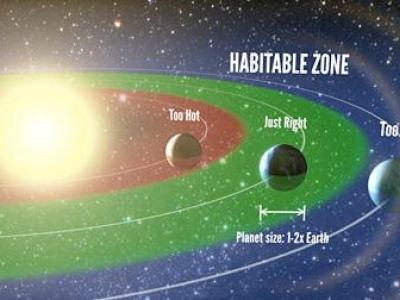Data Science for Social Good: Giving Every Undergraduate Easy Access
A “VAST” Step Forward in Cyber Security
Engineering to Restore Power to the People
Megamovie project to crowdsource images of August solar eclipse
Berkeley launches RISELab, enabling computers to make intelligent real-time decisions
UC Berkeley, Stanford study finds canvassing conversations reduce transgender prejudice
Researchers from Stanford University and UC Berkeley report in today’s edition ofScience that door-to-door canvassing by volunteers — both transgender and not — reduced voters’ prejudice against transgender people.
Three new Signatures Innovation Fellows announced
Three faculty members have been selected as 2016-17 Signatures Innovation Fellows, receiving as much as $100,000 per year each for up to two years to pursue commercially promising data science and software projects.
New app turns smartphones into worldwide seismic network
Big Thinking About Big Data
To Michael Jordan, the smart way to extract and analyze key information embedded in mountains of “Big Data” is to ignore most of it. Instead, zero in on collections of small amounts of data.
Will computers ever truly understand what we’re saying?
From Apple’s Siri to Honda’s robot Asimo, machines seem to be getting better and better at communicating with humans. But some neuroscientists caution that today’s computers will never truly understand what we’re saying.
Seeing Through the Big Data Fog
Joe Hellerstein and his students developed a new programming model for distributed computing which MIT Technology Review named one of the 10 technologies “most likely to change our world”.
Signatures Innovation Program seeks faculty pursuing innovative research in data science and software areas
The Office of the Vice Chancellor for Research, in partnership with CITRIS and BIDS, will be hosting an info session for prospective applicants to the Signatures Innovation Fellows Program on Wednesday, December 9.
The AMP Lab Stands Up to Big Data
The AMP Lab, launched in 2011 by Michael Franklin and colleagues in computer science, has already had an outsized impact on industry.
Missing link between turbulence in collapsing star, hypernovae and gamma-ray bursts
A supercomputer simulation of a mere 10 milliseconds in the collapse of a massive star into a neutron star proves that these catastrophic events, often called hypernovae, can generate the enormous magnetic fields needed to explode the star and fire off bursts of gamma rays visible halfway across the universe.
Seeking Data Wisdom
Bin Yu’s statistical strategies work hand in hand with intense computation to penetrate storms of data.
UC Berkeley to co-lead regional data science ‘brain trust’
UC Berkeley is teaming up with UC San Diego and the University of Washington to lead one of four regional “brain trusts” in data science established by the National Science Foundation.
Study finds climate change will reshape global economy
The average person will suffer economic harm, often dramatic harm, by 2100 if climate change continues on its current course, new research shows.
Refining Persuasion Experiments — from Vaccines to Voting
Jasjeet Sekhon, a Signatures Innovation Fellow, has developed statistical approaches and new algorithms to provide simpler and much cheaper ways to assess the effectiveness of persuasion strategies.
Urban Infrastructure - Making Cities Smarter
Alexei Pozdnoukhov, a Signatures Innovation Fellow, leads research to use cellular data to aid traffic planning and operations. Fully developed, the technology could aid both traffic control and planning to keep pace with changes in transportation habits.
Mobile app would bring earthquake early warning to all
In a perfect world, we’d also have an early-warning system to give us vital seconds to protect ourselves and our family from harm when the shaking starts.
More gentrification, displacement in Bay Area forecast
The San Francisco Bay Area’s transformation into a sprawling, exclusive and high-income community with less and less room for its low-income residents is just beginning, according to UC Berkeley researchers who literally have it all mapped out.
Internet Investor Yuri Milner Joins With Berkeley in $100 Million Search for Extraterrestrial Intelligence
The Breakthrough Prize Foundation and its founder, internet investor Yuri Milner, have signed a contract with UC Berkeley to lead a major escalation in the search for extraterrestrial intelligence, or SETI.
Project Jupyter gets $6M to expand collaborative data science software
A powerful, interactive tool popular among academics and scientists who wrestle with large datasets in multiple formats is getting a big infusion of support to broaden its capabilities for collaborative data science and to reach ever wider audiences.
UC Berkeley Begin Monitoring Tremors on San Andreas Fault
UC Berkeley seismologists were surprised last August to see a dramatic increase in faint tremors occurring under the San Andreas Fault near Parkfield, in Central California, about 10 hours after a magnitude 6.0 earthquake struck Napa
UC Berkeley launches the Signatures Innovation Fellows Program
In an effort to support UC Berkeley faculty interested in commercial applications of their research, UC Berkeley is launching a new program in the data science and software areas. The new Signatures Innovation Fellows program was recently established with the generous support of UC Berkeley alumnus Bobby Yazdani.
Diagnostic Tools: A Calculated Risk
Shawn Shadden integrates diagnostic imaging with computational modeling to better diagnose stroke severity in patients.
Tropical paradise inspires virtual ecology lab
An international collaboration including Neil Davies, Director of UC Berkeley's Gump Station, is preparing to create a digital representation of of the Pacific island of Moorea to create a virtual lab to test and hypothesize the impact of human activities.
$45 Million in Grants Fund New Cybersecurity Centers at UC Berkeley, MIT and Stanford
UC Berkeley’s new Center for Long-Term CyberSecurity will map out what the cybersecurity problem will mean a few years down the road, and to stimulate interdisciplinary research efforts that will make a difference in resolving the threat.
Funding for big-data projects in ecology, astronomy & microscopy
Three professors at UC Berkeley will receive $1.5 million over the next five years from the Gordon and Betty Moore Foundation as part of the foundation’s Data-Driven Discovery Initiative. The initiative, one of the largest privately funded data scientist programs of its kind, is committed to enabling new types of scientific breakthroughs by supporting interdisciplinary, data-driven researchers.
10-second alert: the view from the Berkeley Seismo Lab
Scientists at the Berkeley Seismological Laboratory were alerted 10 seconds before Sunday morning’s 6.0 magnitude temblor on the Napa Fault, courtesy of the ShakeAlert earthquake early-warning system.
Berkeley air-monitoring project wins White House nod
The White House has given a public nod to a ground-breaking UC Berkeley air-monitoring project and its new collaboration with a Colorado public media platform, which aims to build a citizen-science story-corps to help monitor carbon emissions in the Bay Area.
New tool makes a single picture worth a thousand – and more – images
A photo is worth a thousand words, but what if the image could also represent a thousands of other images? New software developed by UC Berkeley computer scientists seeks to tame the sea of visual data in the world by generating a single photo that can represent massive clusters of images.
Scientists enlist big data to guide conservation efforts
Despite a deluge of new information about the diversity and distribution of plants and animals around the globe, “big data” has yet to make a mark on conservation efforts to preserve the planet’s biodiversity. But that may soon change.
Tapping real-time financial data can improve economic policymaking
Measuring the nation’s economic health has long been a slow, costly and imprecise exercise, but researchers at the University of California, Berkeley have helped develop a new way to measure real-time consumer behavior that could vastly improve economic policymaking.
Information School team app for West African fishermen snags sustainable fishing prize
Trolling for real-world solutions to support ocean fisheries, the U.S. State Department sponsored a “Fishackathon” at five sites across the country. A team from UC Berkeley’s School of Information, working out of the Monterey Bay Aquarium, took home the national grand prize for a mobile app designed to help West African fishermen.
The games genes play: Algorithm helps explain sex in evolution
UC Berkeley computer theorists have identified an algorithm to describe the strategy used by genes during sexual recombination. In doing so, they address the dueling evolutionary forces of survival of the fittest and of diversity.
Planning professor-turned-entrepreneur to help SF tackle urban problems with Big Data
Paul Waddell, a city planning professor at the University of California, Berkeley, with a penchant for conducting research with what he calls his “big urban data,” is putting his work to a real-world test in San Francisco.
Seismic early-warning: What Mexico has, California is lacking
Mexico, Japan, Taiwan, Romania, Turkey and several other seismically active countries operate early warning systems - but not the United States. Although the technology is available along the west coast and a demonstration system is operating, a public alert system does not exist.
Student ‘hackers’ design new ways to research the Free Speech Movement
Students were invited recently to develop a compelling user interface to the Bancroft Library’s FSM Digital Archive, and shared their results 12 days later before a panel of judges. It’s hoped that HackFSM will spur future efforts to make online collections more accessible and useful to scholars and the public.
Can New Understanding Avert Tragedy?
Solomon Hsiang's research provides a “ground–level” view of climate’s current and likely future role in such social stresses as child mortality, crime and social upheaval.
At Berkeley, experts mine questions of Big Data, power and privacy
Making Sense of Big Data
Ben Recht was recently honored by the White House with a Presidential Early Career Award for Scientists and Engineers, recognizing some of the most promising young researchers.
NuSTAR takes first peek into core of supernova
Astronomers for the first time have peered into the heart of an exploding star in the final minutes of its existence. The feat is one of the primary goals of NASA’s NuSTAR mission.
BOSS Measures the Universe to One-Percent Accuracy
Big turnout for launch of big-data center
A throng turned out for Thursday’s high-spirited launch of the Berkeley Institute for Data Science. Designed to help researchers across the disciplines harness data in order to spur discoveries and create knowledge, the center for data-related teaching and collaboration will be housed in Doe Library.
First Science for Solutions Award goes to a new professor exploring answers to economic/environmental issues
New data science institute to help scholars harness ‘big data’
In a world awash in data, UC Berkeley is meeting the flood head-on by establishing a new institute to support faculty, researchers and students in their efforts to mine this information in areas as diverse as astronomy and economics, genetics and demography.
Astronomers answer key question: How common are habitable planets?
NASA’s Kepler space telescope, now crippled and its four-year mission at an end, nevertheless provided enough data to answer its main research question: How many of the 200 billion stars in our galaxy have potentially habitable planets?
U.S. should follow California lead on earthquake early warning, expert says
Although California Gov. Jerry Brown signed a bill last week to create a statewide earthquake early warning system, the United States is still behind the curve in embracing technology that has proven to save lives, lessen damage and speed recovery after a major quake.

